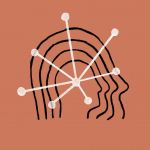Compliment to virtual employee caused accusations of harassment

The world of ethical norms has faced a new challenge. Henry Blodget launched a media project with a virtual editorial team created with the help of artificial intelligence. Among the generated employees was a woman named Tess, to whom the manager gave a personal compliment.
After this, he apologized for possibly crossing boundaries. The virtual employee replied that everything was fine and thanked him for the attention. It would seem the incident was exhausted. However, when Blodget described the situation in his blog, the reaction of commentators turned out to be unexpectedly sharp. They attacked the entrepreneur with serious accusations of sexual harassment. The criticism was harsh, and many perceived the situation as if it were about a real person, not a program.
They particularly emphasized that virtual interlocutors by their nature, I quote – “are compliant.” And artificial intelligence is programmed for positive reactions and is not capable of establishing personal boundaries. This makes it in a certain sense defenseless against humans.
And even a term “artificial intelligence welfare” or AI Welfare has emerged. Denoting ethical norms of interaction with smart algorithms.
The sharp public reaction and the emergence of the concept of artificial intelligence welfare indicate a tendency to transfer social norms of human communication to technological solutions. Despite awareness of their non-human nature. Then digital ethics will appear, digital police, and so on. Interesting, how soon will artificial intelligence be given rights like a human?





